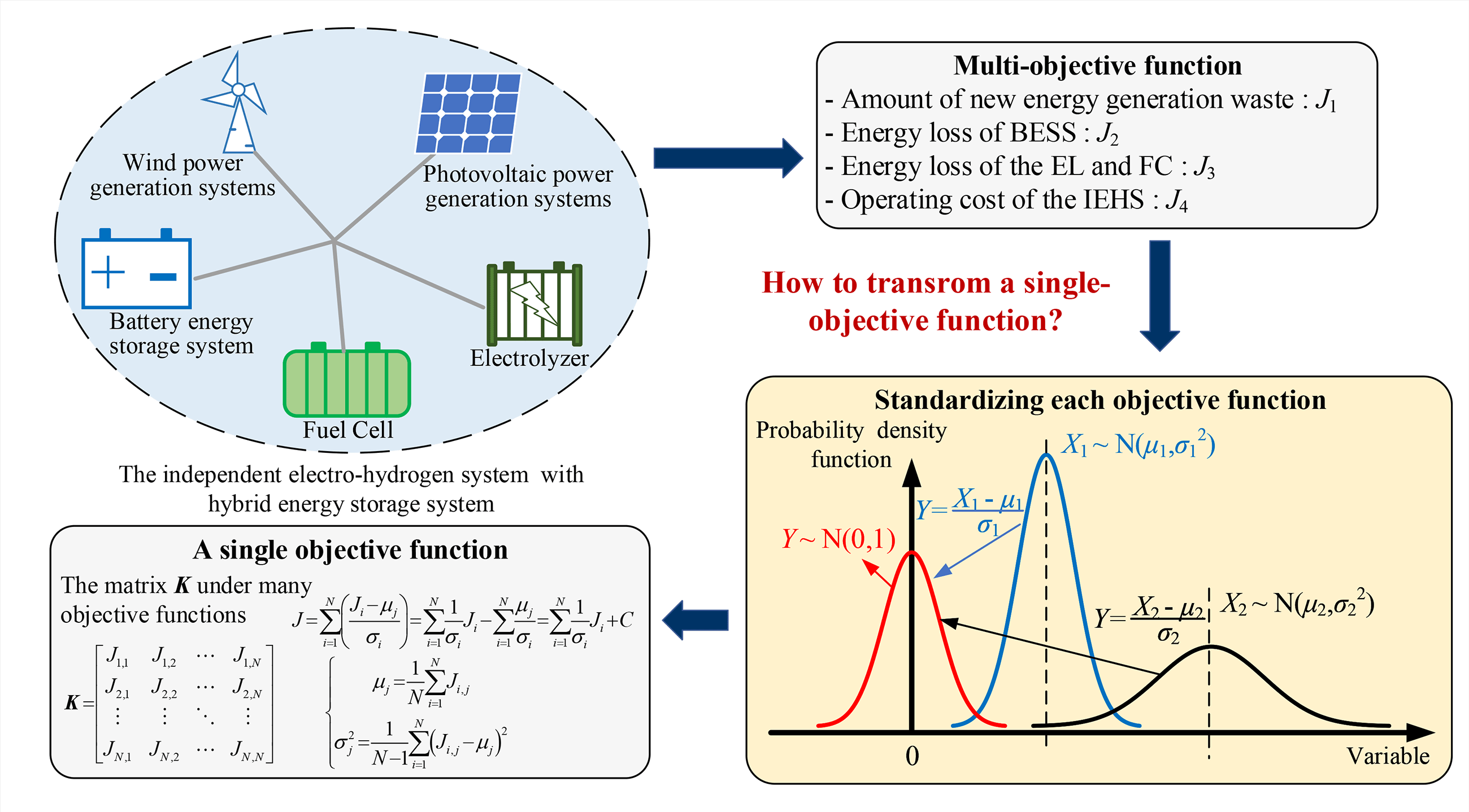 Open Access
Open Access
ARTICLE
Optimal Scheduling of an Independent Electro-Hydrogen System with Hybrid Energy Storage Using a Multi-Objective Standardization Fusion Method
1 School of Electrical and Control Engineering, North China University of Technology, Beijing, 100144, China
2 China Three Gorges Technology Co., Ltd., Beijing, 100032, China
3 School of Automation and Electrical Engineering, University of Science and Technology Beijing, Beijing, 100083, China
* Corresponding Author: Mingxuan Chen. Email:
Energy Engineering 2025, 122(1), 63-84. https://doi.org/10.32604/ee.2024.057216
Received 11 August 2024; Accepted 15 October 2024; Issue published 27 December 2024
Abstract
In the independent electro-hydrogen system (IEHS) with hybrid energy storage (HESS), achieving optimal scheduling is crucial. Still, it presents a challenge due to the significant deviations in values of multiple optimization objective functions caused by their physical dimensions. These deviations seriously affect the scheduling process. A novel standardization fusion method has been established to address this issue by analyzing the variation process of each objective function’s values. The optimal scheduling results of IEHS with HESS indicate that the economy and overall energy loss can be improved 2–3 times under different optimization methods. The proposed method better balances all optimization objective functions and reduces the impact of their dimensionality. When the cost of BESS decreases by approximately 30%, its participation deepens by about 1 time. Moreover, if the price of the electrolyzer is less than 15 ¥/kWh or if the cost of the fuel cell drops below 4 ¥/kWh, their participation will increase substantially. This study aims to provide a more reasonable approach to solving multi-objective optimization problems.Graphic Abstract

Keywords
Cite This Article
 Copyright © 2025 The Author(s). Published by Tech Science Press.
Copyright © 2025 The Author(s). Published by Tech Science Press.This work is licensed under a Creative Commons Attribution 4.0 International License , which permits unrestricted use, distribution, and reproduction in any medium, provided the original work is properly cited.


 Submit a Paper
Submit a Paper Propose a Special lssue
Propose a Special lssue View Full Text
View Full Text Download PDF
Download PDF Downloads
Downloads
 Citation Tools
Citation Tools